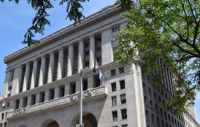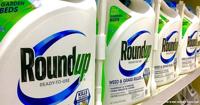
CVS
PHILADELPHIA - How about $200 million more, lawyers are asking a federal judge who already hit CVS Caremark with a $95 million judgment over prices it charged the federal government for prescription drugs.
David Sorensen and lawyers at Philadelphia's Berger Montague on July 9 filed a motion to triple the award, a common move in cases brought under the False Claims Act. That law punishes companies found to have overbilled government agencies, like the Centers for Medicare and Medicaid Services.
Tripling, or trebling, the damages would put the amount at $285 million, and they say another $5.6 million should be tacked on in civil penalties.
"It is well-settled that the FCA provides for the automatic trebling of damages," the motion says.
Lawyers sought an initial verdict of $338 million but Philadelphia federal judge Mitchell Goldberg stopped well short of that on June 25, when he issued a 105-page verdict in a case brought by a whistleblower who said CVS Caremark, a pharmacy benefits manager, charged the federal government much more for prescription drugs than it did pharmacies with which it had reached pricing agreements.
The trial started in March before Goldberg ordered additional briefing. Closing arguments happened in June.
"(T)here is no evidence that Caremark sought clarification, submitted commentary, or in any other way reached out to (the Centers for Medicare and Medicaid Services) to inquire whether its offsetting provisions created reportable (reimbursements)," Goldberg wrote.
"Even if I were to accept Caremark's argument, that it did not view its one-way (Generic Effective Rate) guarantees the same as a two-way GER guarantee, this does not absolve Caremark from asking CMS for guidance.
"This is especially so when the economic similarities and impact on Part D drug prices were so clearly apparent to Caremark."
A whistleblower working for Aetna sued CVS Caremark in 2014 under the False Claims Act, which allows private plaintiffs to act in the interest of the federal government in return for a significant percentage of whatever they recover.
In this case, Sarah Behnke alleged CVS Caremark billed CMS for drugs at a higher price than Caremark paid other retail pharmacies. It was alleged Medicare paid $75 million more than it should have in 2012-2013.
Behnke was Aetna's head actuary for Medicare Part D and claimed Caremark violated federal law requiring PBMs to report so-called 'pass-through' prices and that the fraudulent claims cost Medicare and patients billions of dollars, dating back to 2007.
At issue are Generic Effective Rate guarantees, which ensure the cost of generic drugs from pharmacies stays below a certain threshold. Caremark had GER guarantees with Walgreens and Rite Aid, plus its own CVS Pharmacy.
The prices, alleged to be lower than what CMS was charged, allegedly violated law requiring Caremark to report them to CMS. Things got complicated as to how much was actually paid from Caremark's GER agreements and in what matter.
Caremark did not adequately inform CMS on how the GER guarantees worked, Goldberg found, finding the employee responsible for doing so left CMS "with an incomplete picture."
"On the one hand, CMS was told that the pharmacies did not make true-up payments to Caremark," he wrote.
"But on the other, Caremark did not explain that the offsetting provisions had the same economic effect as a true-up payment. In these circumstances, it is of no moment that CMS did not ask follow up questions, impose finds, or otherwise find Caremark at fault.
"CMS thought its questions were answered, when in reality, it was misled."
Behnke and her lawyers at Berger Montague are in line for a huge payday. The federal government had the option to join her case but did not. Rewards for whistleblowers top out at 25% of the recovery when the government joins, but goes up to 30% when it does not.








